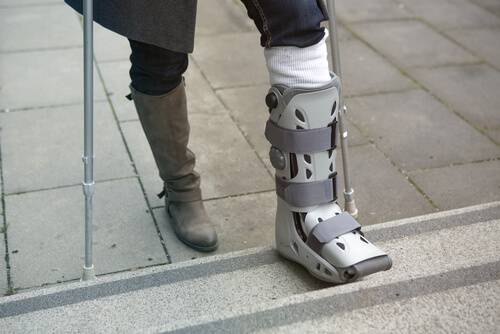
With the onset of the modern lifestyle that brings several risks to us, it has become imperative to have health insurance. However, if you happen to suffer from a sudden disability and are forced to quit your job, you might go through a substantial financial loss — something which not all health insurance providers might cover.
You can opt for different types of disability insurance to make sure that such a situation could be avoided — to make sure that you have a disability cover all the time.
What is disability insurance?
Disability insurances work to provide you coverage against any form of disability which can happen due to accidents. If you opt for disability insurance, then you get a part of your lost income recovered, along with the medical expenses that you might incur. Disability insurance offers you benefits and coverage for a short or an extended period — depending on the type of insurance you buy.
Types of disability insurance
The best way to go about disability cover is to purchase one which suits your needs the most. With so many options available, it might be hard to pick one. The best way around it is to conduct thorough research and understand which policy will best suit your financial needs. There are two types of disability insurance:
- Short term disability insurance:Short term disability insurance comes with a waiting period which can last anywhere between zero to fourteen days. The benefits that you get on short term disability insurance only lasts for a maximum of two years. Under a short term disability insurance, the injuries that have taken place since birth, or the ones that have come up due to an accident or an ailment are quite eligible.
- Long term disability insurance: With a long term disability insurance, you also get coverage for a lifetime — one of the primary reasons why it is a popular form of insurance. It covers injuries and critical illnesses that may make you discontinue your work, thus saving you from the financial hazards that may come your way. This is a type of disability insurance where the waiting period can range from weeks to months.
It covers a broad range of diseases, including mental illness, cardiovascular problems, cancer tissue tears, and other similar disorders.
Who is eligible for a disability insurance?
The minimum and maximum entry age for disability insurances happen to be at 18 years and 70 years, respectively. The cover that you get, however, varies with insurance service providers.
Exclusions
Disability cover does not include all the conditions that an individual might face — certain conditions that are not entirely governed by the concept of fate. It has no cover for any pre-existing medical condition, injuries that people might suffer in the event of a suicide attempt, or the case of a war. It also does not cover disabilities that might occur as a result of incarceration.
Settlement process
When a case occurs which is covered by disability insurance, someone in the family should promptly file a claim. The request needs to have a form that is duly filled and signed. It also needs to have a hospital discharge summary along with the final bill, and a certificate of disability insured by a medical board.
The time that is taken to settle the claims vary. However, most of the insurance companies review the policy and get back to you with the compensation amount within 7 to 30 days of the accident.
How is it different from a rider?
Insurance riders only tend to offer basic protection, and may not entirely cover critical illnesses, or other factors that might come into play. Usually, they include an added case — it could either be a disability, or critical illness, or anything else. The other type of disability insurance provides you with comprehensive coverage — something that you can wholly rely on.
The idea of buying disability insurance revolves around income compensation. So it is best to choose a plan which provides you with maximum coverage for the premiums for you pay. Having a good source of income post disability can ensure that you do not have to struggle with your lifestyle and that you do not become a financial burden to your family.


Comments